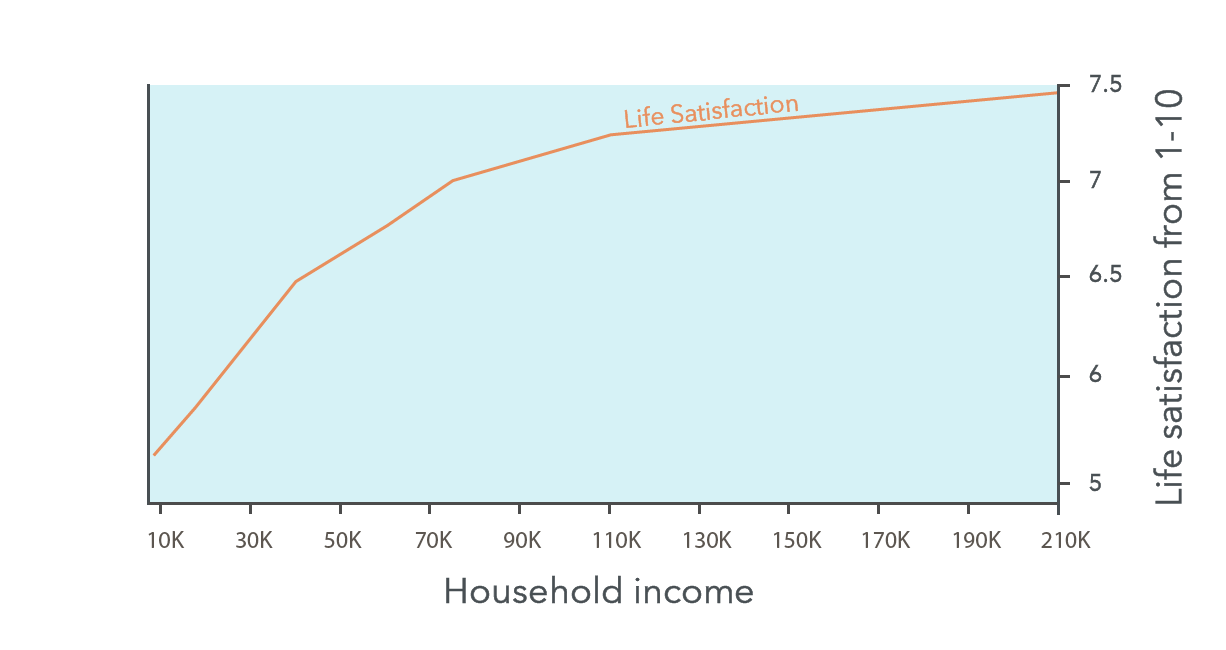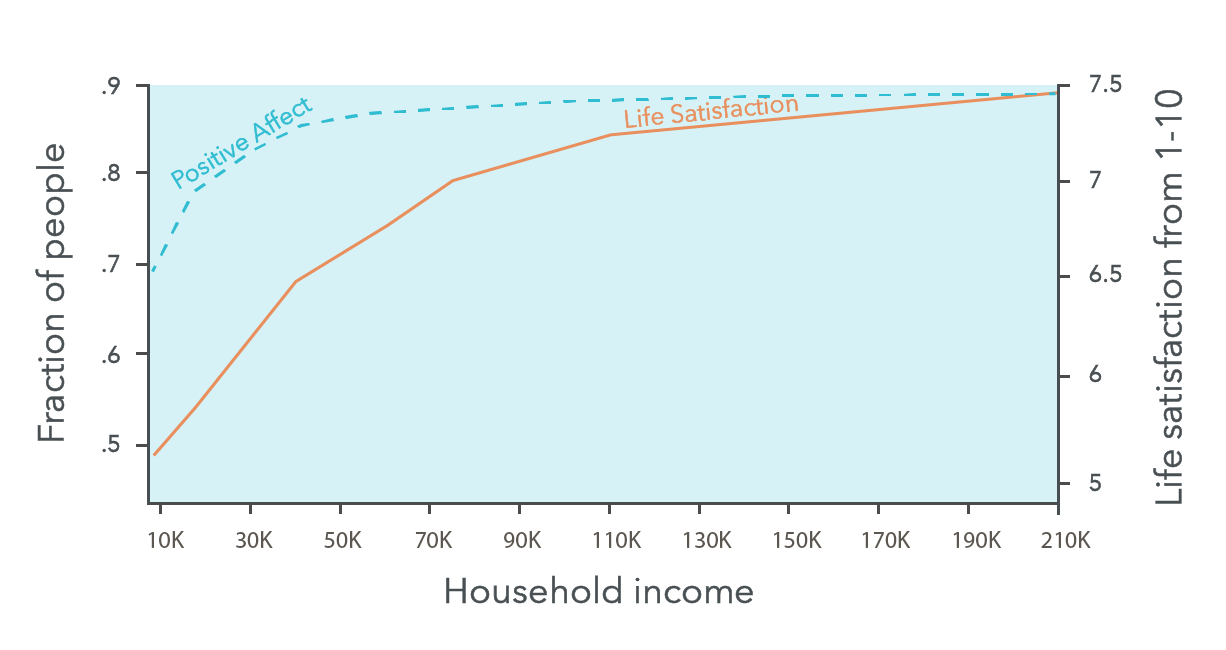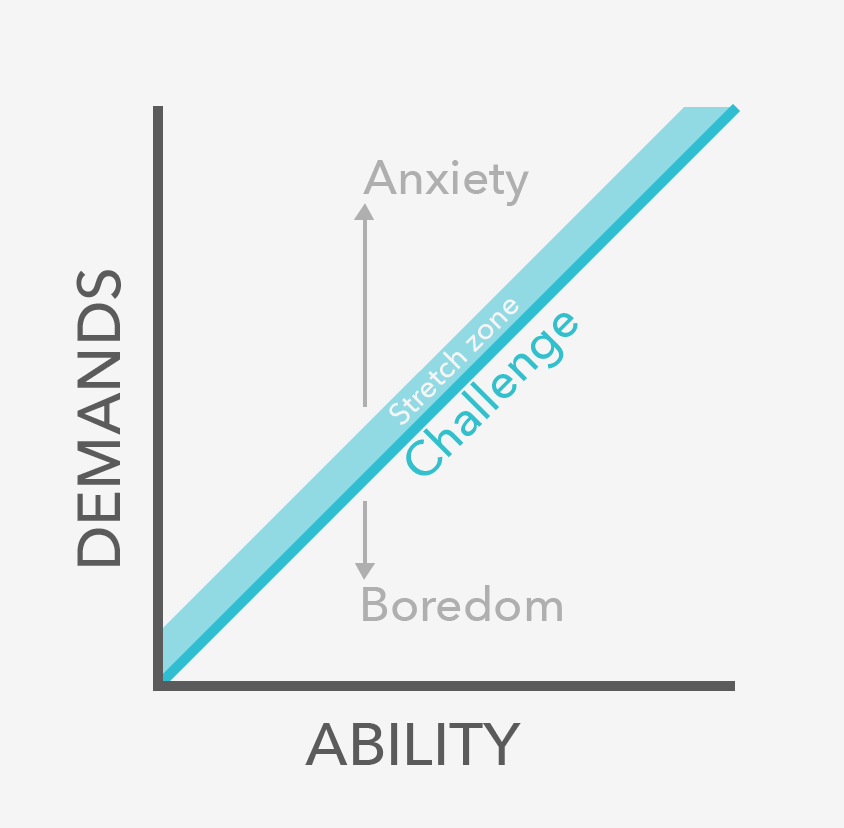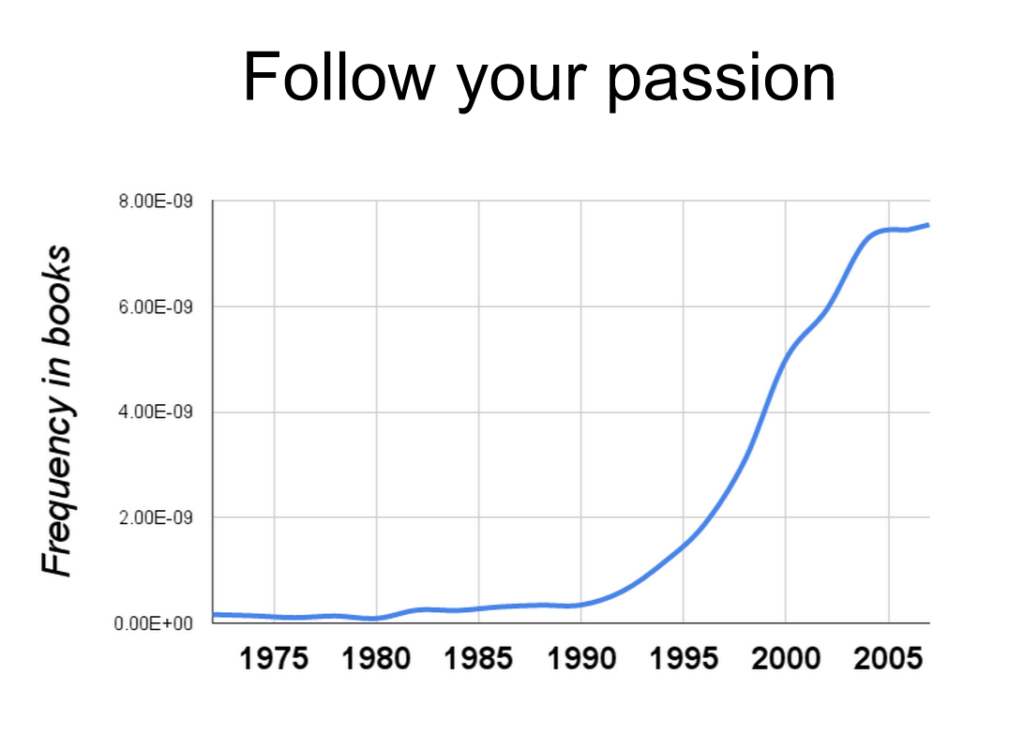We all want to find a dream job that’s enjoyable and meaningful, but what does that actually mean?
Some people imagine that the answer involves discovering their passion through a flash of insight, while others think that the key elements of their dream job are that it be easy and highly paid.
We’ve reviewed two decades of research into the causes of a satisfying life and career, drawing on over 60 studies, and we didn’t find much evidence for these views.
Instead, we found six key ingredients of a dream job. They don’t include income, and they aren’t as simple as “following your passion”.
In fact, following your passion can lead you astray. Steve Jobs was passionate about Zen Buddhism before entering technology. Condoleezza Rice was a talented classical musician before she started studying politics.
Rather, you can develop passion while doing work that you will find enjoyable and meaningful. The key is to get good at something that helps other people.
The bottom line
Here are the six key ingredients of a dream job:
- Work you’re good at
- Work that helps others
- Engaging work that lets you enter a state of flow (freedom, variety, clear tasks, feedback)
- Supportive colleagues
- A job that meets your basic needs, like fair pay, a short commute and reasonable hours
- A job that fits your personal life
Most importantly, focus on getting good at something that helps others.
The usual way people try to work out their dream job is to imagine different jobs and think about how satisfying they seem. Or to think about times they’ve felt fulfilled in the past. The hope is that they will discover their dream job in a flash of insight.
However, research shows that there are better methods. A bit of self-reflection is useful, but it only goes so far, because we’re good at deceiving ourselves.
You can probably think of times in your own life when you were excited about a holiday or party, but when it actually happened, it was just okay. In the last few decades, research has shown that this is common: we’re bad at predicting what will make us most happy, and we don’t even realize how bad we are. You can find an excellent overview of this research in Stumbling Upon Happiness, by Harvard Professor Dan Gilbert.
It turns out we’re even bad at remembering how satisfying different experiences were. One well-established mistake is that we tend to judge an experience mainly by its ending. If you missed your flight on the last day of an enjoyable holiday, you’ll probably remember the holiday as bad. This means we can’t just trust our intuitions; we need a more systematic way of working out which job is best for us.
The fact that we often judge the pleasure of an experience by its ending can cause us to make some curious choices.
– Prof. Dan Gilbert, Stumbling Upon Happiness
The same research that proves how bad we are at self-reflection can help us make more informed choices. We now have two decades of research into positive psychology, the science of happiness, as well as decades of research into motivation and job satisfaction. We’ll summarize the main lessons of this research and explain what it means for finding a fulfilling job.
Is being an actuary your dream job? Two overrated goals for a fulfilling career
People often imagine that a dream job is well paid and easy.
One of the leading job rankings in the U.S., provided by Careercast, rates jobs on the following criteria:
- Is it highly paid?
- Is it going to be highly paid in the future?
- Is it stressful?
- Is the working environment unpleasant?
Based on this, the best job in 2015 was: actuary.
That is, someone who uses statistics to measure and manage risks, often in the insurance industry.
It’s true that actuaries are more satisfied with their jobs than average, but they’re not among the most satisfied. Only 36% say their work is meaningful,so being an actuary isn’t a particularly fulfilling career.
So the Careercast list isn’t capturing everything. In fact, the evidence suggests that money and avoiding stress aren’t that important.
Money makes you happier, but only a little
It’s a cliche that “you can’t buy happiness”, but at the same time, financial security is among most people’s top career priorities. Moreover, when people are asked what would most improve the quality of their lives, the most common answer is more money.7 What’s going on here? Which side is right?
A lot of the research on this question is remarkably low quality. But several recent major studies in economics offer more clarity. We went through the best studies available, and the truth turns out to lie in the middle: money does make you happy, but only a little.
Here are the findings from a huge survey in the United States in 2010:

People were asked to rate how satisfied they were with their lives on a scale from one to ten. The result is shown on the right, while the bottom shows their household income.
You can see that going from an income of $40,000 to $80,000 is only associated with an increase in life satisfaction from about 6.5 to 7 out of 10. That’s a lot of extra income for a small increase.
If we look at day-to-day happiness, income is even less important. “Positive affect” is whether people reported feeling happy yesterday. The left shows the fraction of people who said “yes”. This line goes flat around $50,000, showing that beyond this point income had no relationship with day-to-day happiness.

The picture is similar if we look at the fraction who were “not blue” or “stress free” yesterday.

These lines are completely flat by $75,000, so beyond this point, income had no relationship with how happy, sad or stressed people felt. This is hardly surprising – we all know people who’ve gone into high earning jobs and ended up miserable.
Moreover, the relationship between income and happiness under this threshold may be caused by a third factor. For example, being healthy could both make you happier and allow you to earn more. If this is true, then the effect of earning extra money will be even weaker than the correlations above suggest.
Finally, $75,000 of household income is equivalent to an individual income of only $40,000 if you don’t have kids.
Summing up everything above, income likely has a small effect after:
- $40,000 if you only need to support yourself.
- $60,000 if you need to support one other person who doesn’t work (+$20,000 per dependent).
To customize this threshold for yourself, make the following adjustments:
- Add 50% if you live in an expensive city, or subtract 30% if you live somewhere cheap.
- Add more if you’re especially motivated by money (or subtract some if you have frugal tastes).
- Add 15% in order to be able to save for retirement (or however much you personally need to save in order to be able to maintain the standard of living described above).
The average college graduate in the United States earns $68,000 per year over his or her life, while the average Ivy League graduate earns over $100,000. The upshot is that if you’re a college graduate in the U.S. (or a similar country), then you’ll likely end up well into the range where more income has almost no effect on your happiness.

Don’t aim for low stress
Many people tell us they want to “find a job that’s not too stressful.” And it’s true that in the past, doctors and psychologists believed that stress was always bad. However, we did a survey of the modern literature on stress, and today, the picture is a bit more complicated.
One puzzle is that studies of high ranking government and military leaders found they had lower levels of stress hormones and less anxiety, despite sleeping fewer hours, managing more people and having higher occupational demands. One widely supported explanation is that having a greater sense of control (by setting their own schedules and determining how to tackle the challenges they face) protects them against the demands of the position.
There are other ways that a demanding job can be good or bad depending on context:
| Variable | Good (or neutral) | Bad | |
|---|---|---|---|
| Type of stress | Intensity of demands | Challenging but achievable | Mismatched with ability (either too high or too low) |
| Duration | Short-term | On-going | |
| Context | Control | High control and autonomy | Low control and autonomy |
| Power | High power | Low power | |
| Social Support | Good social support | Social isolation | |
| How to cope | Mindset | Reframe demands as opportunities, stress as useful | View demands as threats, stress as harmful to health |
| Altruism | Performing altruistic acts | Focusing on yourself | |
This means the picture looks more like the following. Having a very undemanding job is bad – that’s boring. Having demands that exceed your abilities is bad too: that causes harmful stress. The sweet spot is where the demands placed on you match your abilities – that’s a fulfilling challenge.


What should you aim for in a dream job?
Professor Seligman, the founder of positive psychology, summarized the key ingredients of wellbeing as:
- Positive emotion – feeling happy day-to-day.
- Engagement – having challenging, absorbing tasks.
- Relationships – having supportive friends and family.
- Meaning – having a purpose higher than yourself.
- Achievement – being good at something.
We’ve applied these factors to our analysis of what to look for in a job – and combined them with research on job satisfaction – to come up with six key ingredients of a dream job.
These are the six ingredients.
1. Work that’s engaging
Engaging work is work that draws you in, holds your attention, and gives you a sense of flow.
To imagine unengaging work, think of this:

To imagine engaging work, think of this:

Computer games are designed to be as engaging as possible.
What makes the difference? Why are computer games engaging while office admin isn’t? Researchers have identified four factors:
- The freedom to decide how to perform your work.
- Clear tasks, with a clearly defined start and end.
- Variety in the types of task.
- Feedback, so you know how well you’re doing.
Each of these factors has been shown to correlate with job satisfaction in a major meta-analysis (r=0.4), and they are widely thought by experts to be the most empirically verified predictors of job satisfaction.
That said, playing computer games is not the key to a fulfilling life (and not just because you won’t get paid). That’s because you also need…
2. Work that helps others
A fulfilling career needs work that is meaningful as well as engaging.
The following jobs have the four ingredients of engaging work that we discussed. But when asked, over 90% of people doing them say they don’t find them meaningful:
- Revenue analyst
- Fashion designer
- TV newscast director
These jobs, however, are seen as meaningful by almost everyone who does them:
- Fire service officer
- Nurse midwife
- Neurosurgeon
The key difference is that the second set of jobs seem to help other people. That’s why they’re meaningful, and that’s why helping others is our second factor.
There’s a growing body of evidence that helping others is a key ingredient for life satisfaction. People who volunteer are less depressed and healthier. A randomized study showed that performing a random act of kindness makes the giver happier. And a global survey found that people who donate to charity are as satisfied with their lives as those who earn twice as much.
Helping others isn’t the only route to a meaningful career, but it’s widely accepted by researchers that it’s one of the most powerful.
3. Work you’re good at
Being good at your work gives you a sense of achievement, one of the five ingredients of life satisfaction mentioned above.
It also gives you the power to negotiate for the other components of a fulfilling job, such as the ability to work on meaningful projects, undertake engaging tasks and earn fair pay. If people value your contribution, you can ask for these conditions in return.
For both reasons, skill ultimately trumps interest. Even if you love art, if you pursue it as a career but aren’t good at it, you’ll end up doing boring graphic design for companies you don’t care about.
That’s not to say you should only do work you’re already good at. As we’ll discuss later, we think that’s wrong. However, you want the potential to get good at it.
4. Work with supportive colleagues
Obviously, if you hate your colleagues and work for a boss from hell, you’re not going to be satisfied.
Since good relationships are such an important part of having a fulfilling life, it’s important to be able to become friends with at least a couple of people at work. And this probably means working with at least a few people who are similar to you.
However, you don’t need to become friends with everyone, or even like all of your colleagues. Research shows that perhaps the most important factor is whether you can get help from your colleagues when you run into problems. A major meta-analysis found “social support” was among the top predictors of job satisfaction (r=0.4).
People who are disagreeable and different from yourself can be the people who’ll give you the most useful feedback, provided they care about your interests. This is because they’ll tell it like it is, and have a different perspective. Prof. Adam Grant calls these people “disagreeable givers”.
So when selecting a job, think about both the nature of the work and the people you’ll be working with. First, will you be able to make friends with some people in the workplace? Second, does the culture of the workplace make it easy to get help and work together?
5. Work that meets your basic needs
To be satisfied, everything above is important. But you also need the absenceof things that make work unpleasant. All of the following tend to be linked to job dissatisfaction.
- A long commute, especially if it’s over an hour by bus.
- Very long hours.
- Pay you feel is unfair.
- Job insecurity.
Although these sound obvious, people often overlook them. The negative consequences of a long commute can be enough to outweigh many other positive factors.
6. Work that fits with the rest of your life
You don’t have to get all the ingredients of a fulfilling life from your job. It’s possible to find a job that pays the bills and excel in a side project. Or to find a sense of meaning through philanthropy or volunteering. Or to build great relationships outside of work.
We’ve advised plenty of people who have done this. There are famous examples too – Einstein had his most productive year in 1905, while working as a clerk at a patent office.
So this last factor is a reminder to consider how your career fits with the rest of your life.
Before we move on, here’s a quick recap of the six ingredients. This is what to look for in a dream job.
- Work you’re good at
- Work that helps others
- Engaging work that lets you enter a state of flow
- Supportive colleagues
- A job that meets your basic needs, like fair pay and reasonable hours
- A job that fits your personal life
Should you just follow your passion?
“Follow your passion” has become a defining piece of career advice.

The idea is that the key to finding a great career is to identify your greatest interest – “your passion” – and pursue a career involving that interest. It’s an attractive message: just commit to your passion, and you’ll have a great career. And when we look at successful people, they are often passionate about what they do.
Now, we’re fans of being passionate about your work. The research above shows that intrinsically motivating work makes people a lot happier than a big paycheck.
However, there are three ways “follow your passion” can be misleading advice.
One problem is that it suggests that passion is all you need. But even if you’re interested in the work, if you lack the other six factors, you’ll still be unsatisfied. If a basketball fan gets a job involving basketball, but works with people they hate, receives unfair pay, or finds the work meaningless, they are still going to dislike their job.
In fact, “following your passion” can make it harder to satisfy the six ingredients, because the areas you’re passionate about are likely to be the most competitive, which makes it harder to find a good job.

A second problem is that many people don’t feel like they have a career-relevant passion. Telling them to “follow their passion” makes them feel inadequate. If you don’t have a “passion”, don’t worry. You can still find work you’ll become passionate about.
Others feel like they have many passions, and aren’t sure which one to focus on. The six ingredients above, however, let you make more fine grained comparisons.
The third problem is that it can make people needlessly limit their options. If you’re interested in literature, it’s easy to think you must become a writer to have a satisfying career, and ignore other options.
But in fact, you can start a career in a new area. If your work helps others, you practice to get good at it, you work on engaging tasks, and you work with people you like, then you’ll become passionate about it. The six ingredients are all about the context of the work, not the content. Ten years ago, we would never have imagined being passionate about giving career advice, but here we are, writing this article.
Many successful people are passionate, but often their passion developed alongside their success, rather than coming first. Steve Jobs started out passionate about Zen Buddhism. He got into technology as a way to make some quick cash. But as he became successful, his passion grew, until he became the most famous advocate of “doing what you love”.

In reality, rather than having a single passion, our interests change often, and more than we expect. Think back to what you were most interested in five years ago, and you’ll probably find that it’s pretty different from what you’re interested in today. And as we saw above, we’re bad at knowing what really makes us happy.
This all means you have more options for a fulfilling career than you think.
A quick aside before we go on. If you’re finding this guide useful, we’d really appreciate it if you could share the article on Facebook, and help us reach more people.
Now let’s sum up everything.
Do what contributes to the world
Rather than “follow your passion”, our slogan for a fulfilling career is: get good at something that helps others. Or simply: do what contributes.
We highlight “getting good”, because if you find something you’re good at that others value, you’ll have plenty of career opportunities, which gives you the best chance of finding a dream job with all the other ingredients.
You can have all the other five ingredients, however, and still find your work meaningless. So you need to find a way to help others too.
If you put making a valuable contribution to the world first, you’ll develop passion for what you do.
This is what we’ve found in our career advising. For instance, Jess was interested in philosophy as an undergraduate, and considered pursuing a PhD. Instead, she switched into psychology and public policy. Although she finds philosophy interesting, it would have been hard to have a positive impact on the world. Ultimately she thinks this would have made philosophy less fulfilling for her.

Jess is not unusual. Over 1,000 people have made major changes to their career path by following our career advice. Many switched into a field that didn’t initially interest them, but that they believed was important for the world. After developing their skills, finding good people to work with, and a role that’s the right fit for them, they’ve become deeply satisfied.
Here are two more reasons to focus on getting good at something that helps others.
You’ll be more successful
If you make it your mission to help others, then people will want to help you succeed.
This sounds obvious, and there’s now considerable empirical evidence to back it up. In the excellent book Give and Take, Professor Adam Grant argues that people with a “giving mindset” end up among the most successful. This is both because they get more help, and because they’re more motivated by a sense of purpose.
One caveat is that givers also end up unsuccessful if they focus too much on others, and burn out. So you also need the other ingredients of job satisfaction we mentioned earlier, like meeting your basic needs. Being part of a supportive community also helps.
All of this could explain why many of the members of our community have achieved far more than they ever expected. For instance, Ilan founded a non-profit as a sophomore. With his aim to do good, he attracted mentoring and early funding.
Another member, Sam, donated hundreds of thousands of dollars to charity before he turned 26. He was helped by someone in the community who told him about an internship. They were happy to advise because they knew Sam was planning to give away a large share of his income.
In a community where everyone wants to help others, if one person succeeds, then everyone wins.

It’s the right thing to do
The idea that helping others is the key to being fulfilled is hardly a new one. It’s a theme from most major moral and spiritual traditions:
Set your heart on doing good. Do it over and over again and you will be filled with joy.
– Buddha
A man’s true wealth is the good he does in this world.
– Muhammad
Love your neighbor as you love yourself.
– Jesus Christ
Every man must decide whether he will walk in the light of creative altruism or in the darkness of destructive selfishness.
– Martin Luther King, Jr.
What’s more, as we’ll explain in the next section, as a college graduate in a developed country today, you have an enormous opportunity to help others through your career. This is the real reason to focus on helping others – the fact that it’ll make you more personally fulfilled is just a bonus.
Conclusion
To have a dream job, don’t worry too much about money and stress, and don’t endlessly self-reflect to find your one true passion.
Rather, get good at something that helps others. It’s best for you, and it’s best for the world. This is the reason we set up 80,000 Hours – our mission is to help you find a career that contributes.
But which jobs help people? Can one person really make much difference? That’s what we’ll answer in the next section.
__________________________________________________
About the Author
This article was produced by 80,000 Hours. 80,000 Hours is a web platform that is dedicated to helping as many people as possible lead high-impact careers.They do this by providing career advice for talented young people who want to have a social impact. see more.





























